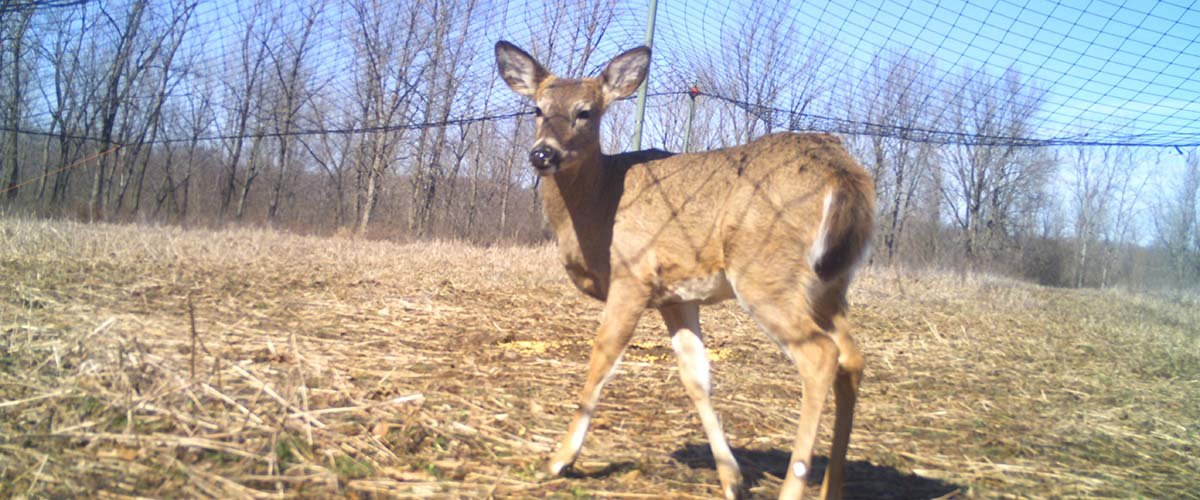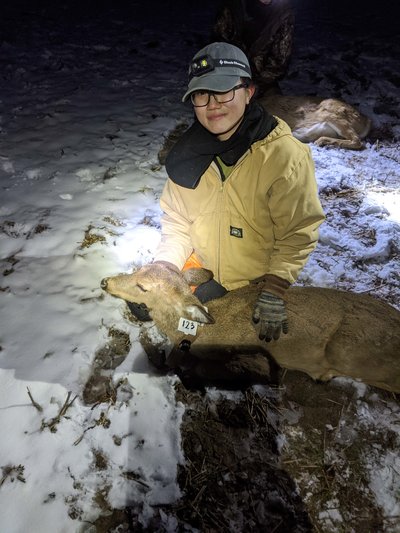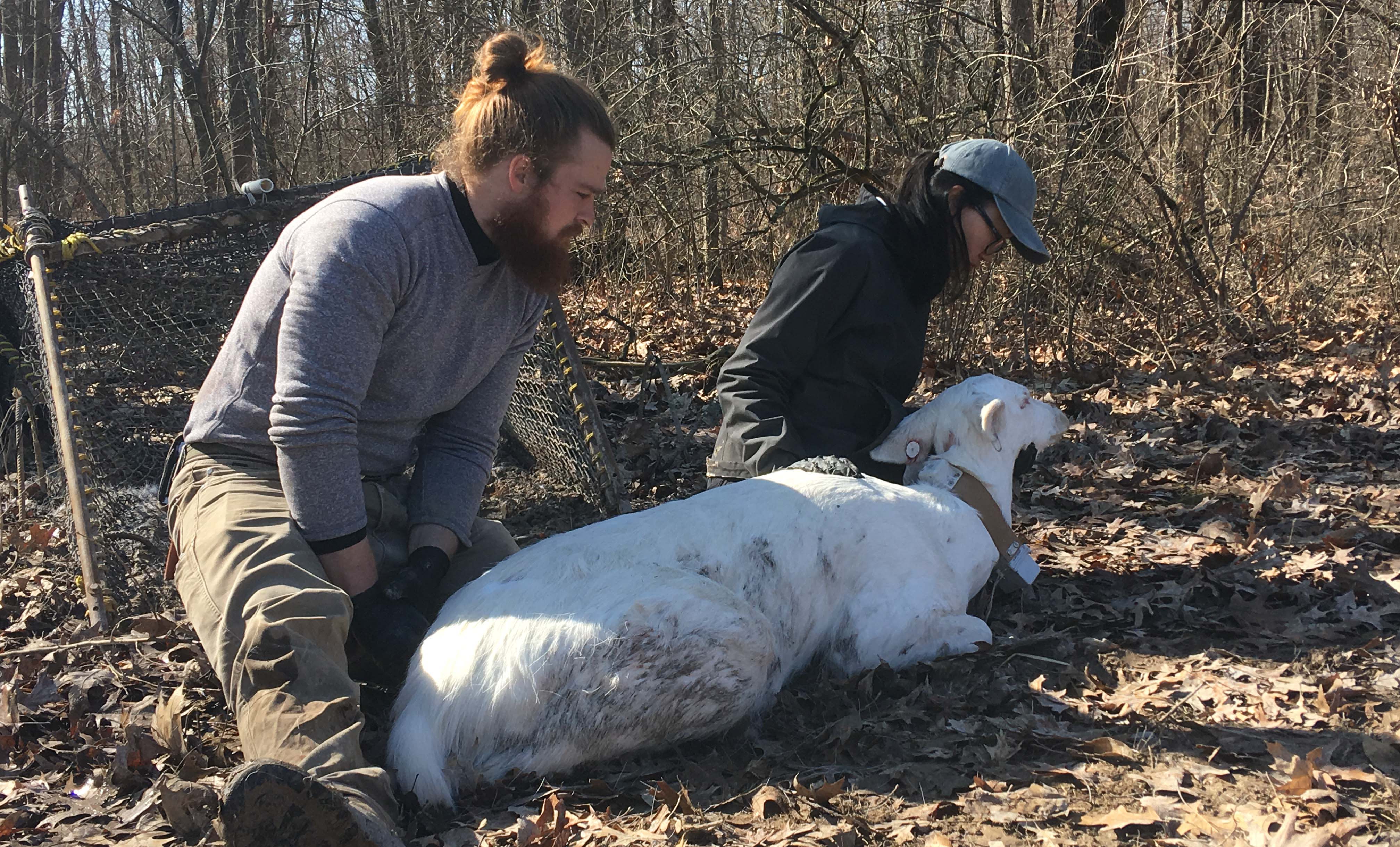
Oh deer! CFANS prepares recent alumna for a career in science, wildlife conservation

We all know the old phrase “deer in the headlights,” but for CFANS alumna Clare Tan Yi Fang, it’s all about putting deer in the spotlight.
As part of her CFANS experience, the fisheries, wildlife and conservation biology graduate (BS ‘19) had the opportunity to do an externship (a program for college students to supplement work experience during their education) as a deer capture technician supporting the work of a Southern Illinois University PhD student.
During her externship in early 2020, Clare used clover traps and drop nets to collar adult white-tailed deer and track them via GPS. In addition to collaring the deer, Clare and the team collected morphometric data, such as body and metatarsus length and chest girth, as well as body condition, including body fat rating and presence of parasites. The collar-collected data provides contact rates amongst deer and informs how they use space in the wild, as well as helps to identify how ecological factors, such as the presence of predators and chronic wasting disease, impact the way deer use their habitat.
The externship gave Clare the opportunity to enrich her skills in ungulate capture and handling. “I knew this experience would help me develop a lot of field skills that will be useful should I conduct my own research in the future,” she said. “One of the greatest things of any field job is being able to merge a love for animals with a love for being outdoors. The best part of this experience was the opportunity to interact with the animals while contributing to science in a meaningful manner.”
One of the highlights of Clare’s externship was capturing and collaring a very rare albino deer. “It was a fully grown doe, which is quite remarkable considering how rarely albinos survive into adulthood. Needless to say, we were very excited,” she said. The albino’s collar data can hopefully shed light into how or if the doe behaves differently from other deer, and help scientists better understand the life history of albino deer.
Clare credits CFANS for the opportunity to participate in this exemplary externship. “CFANS was great in exposing me to resources and opportunities related to my career, such as getting a field job, studying abroad, working for a lab and getting an undergraduate research opportunity,” she said. “I think the classes in the fisheries, wildlife and conservation biology program are relevant for the wildlife field, and the program does a good job of relaying expectations for post-graduation pursuits like entry-level jobs and grad school.”
The unique, hands-on externship that combined passion with professional advancement was just one of the meaningful experiences Clare values from being a CFANS student. She has parlayed her CFANS experiences to her current position as a bird collection curatorial assistant at the Bell Museum, Minnesota’s official natural history museum.
In August 2020, Fisheries, Wildlife and Conservation Biology is the CFANS “major of the month,” so check out the CFANS social media accounts to learn more. If you’re interested in work like Clare’s or in this major, contact academic advisor Megan Schmidt or visit the FWCB website.







